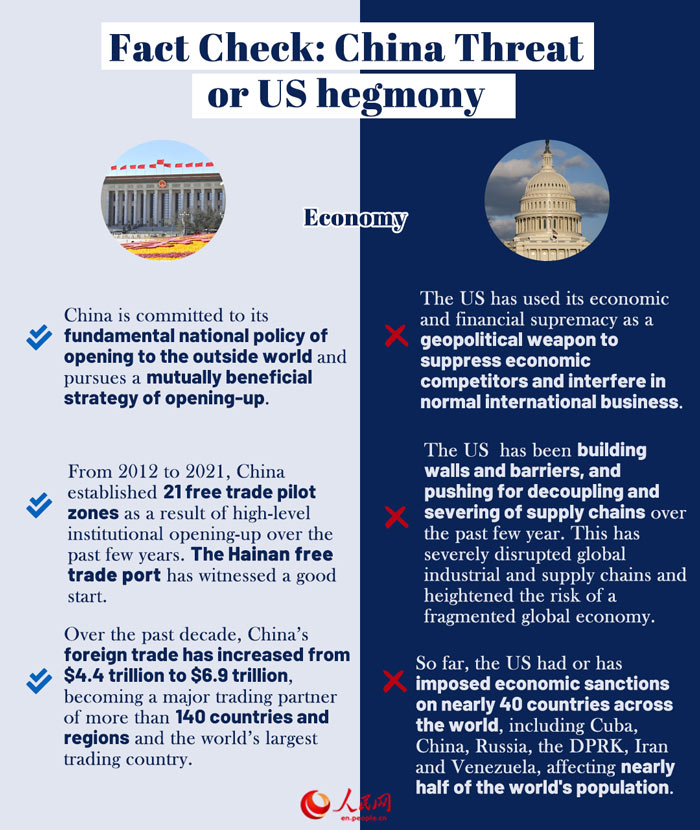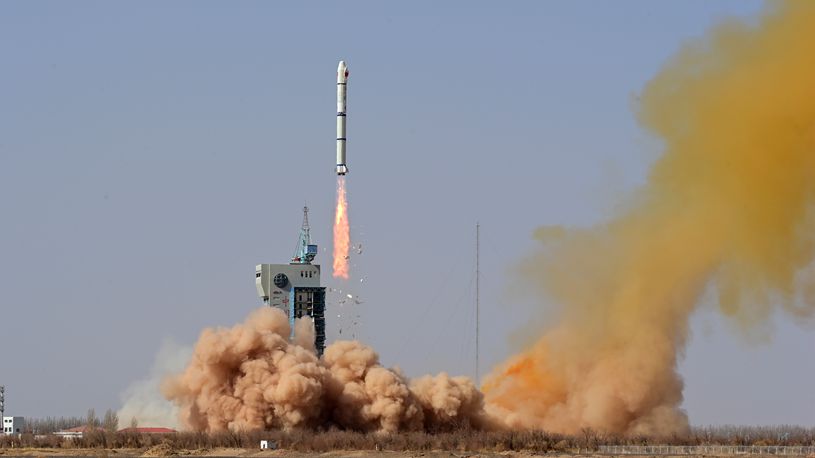Fact check: China's threat? Things to know about China's role in the world (3)

Economy
China is committed to its fundamental national policy of opening to the outside world and pursues a mutually beneficial strategy of opening-up, and strives to create new opportunities for the world with its own development and contribute its share to building an open global economy.
Over the past decade (2012-2021), despite headwinds against economic globalization and rising unilateralism and protectionism in the world, China's foreign trade has increased from $4.4 trillion to $6.9 trillion, becoming a major trading partner of more than 140 countries and regions and the world’s largest trading country. China's annual FDI in actual use has hit 1.15 trillion yuan, up from 700 billion yuan, ranking second globally for five consecutive years since 2017. The capital stock of China's FDI abroad has soared from less than $0.6 trillion to over $2.7 trillion, ranking third in the world. Also, China has established 21 free trade pilot zones as a result of high-level institutional opening-up. The Hainan free trade port has witnessed a good start. The negative list for foreign investment in pilot free trade zones has been shortened by more than 85% from 190 items to 27.
While the US has used its economic and financial supremacy as a geopolitical weapon to suppress economic competitors and interfere in normal international business. Over the past few years, the US has been building walls and barriers, and pushing for decoupling and severing of supply chains. This has severely disrupted global industrial and supply chains and heightened the risk of a fragmented global economy. The US is becoming a major factor threatening the stability and growth of the world economy. The IMF has stated in its recent report that even limited fragmentation could shave 0.2% off of global GDP while a severe fragmentation of the global economy could reduce global economic output by up to 7%.
Doubling down on unilateral sanctions and "long-arm jurisdiction," the United States has enacted such domestic laws as the International Emergency Economic Powers Act, the Global Magnitsky Human Rights Accountability Act, and the Countering America's Adversaries Through Sanctions Act, and introduced a series of executive orders to sanction specific countries, organizations or individuals. So far, the United States had or has imposed economic sanctions on nearly 40 countries across the world, including Cuba, China, Russia, the DPRK, Iran and Venezuela, affecting nearly half of the world's population. This is a serious departure from the principles of liberal market economy that the United States has long boasted.
In conclusion, the so-called "China threat" allegation is a farce of a thief crying "stop, thief" in which the US tries to blame an innocent country for what it is guilty of itself.
 |
Photos
Related Stories
- China-U.S. consensus needs to be translated into policies, actions: premier
- China, U.S. can, must cooperate: premier
- China once again urges U.S. to immediately stop political manipulation on COVID origins-tracing: FM spokesperson
- Tariffs not the answer; both China and US should take a step back: CME legend Leo Melamed
- China open to U.S. commerce secretary's visit: official
- Containment, suppression won't stop China's rejuvenation: FM
- Chinese FM calls on U.S. to opt for mutually beneficial coexistence
Copyright © 2023 People's Daily Online. All Rights Reserved.









